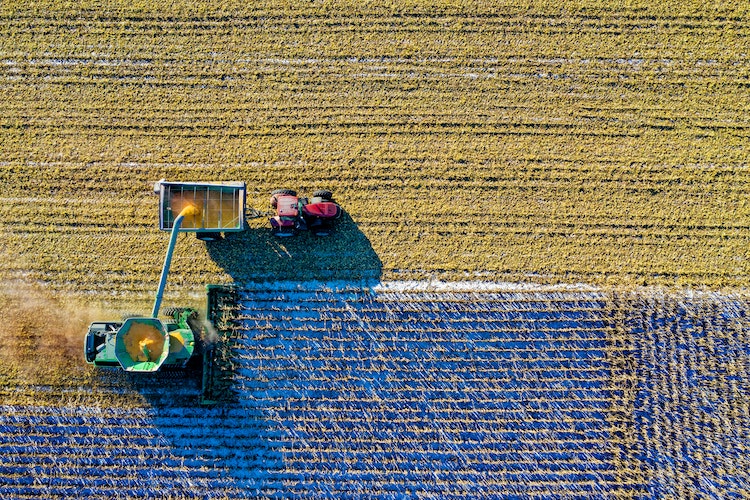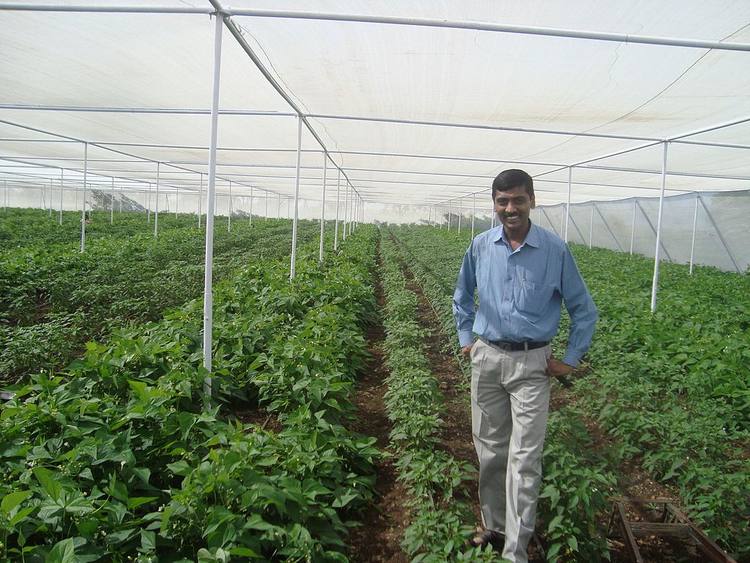This Startup Is Fighting To Save American Agriculture
One of the ways in which California dreamin’ has turned into a nightmare: It’s the country’s biggest food-producing state, and it’s on the brink of a major drought that will seriously impact its farmers.
Strict water rationing is almost a certainty, as California’s water reservoirs are nearly as empty as they were in 2014, when the governor declared a drought emergency. Historically, U.S. farmland has been a stable investment, but the California crisis is causing investors to rethink their portfolio options.
But there is good news growing on the horizon: A farmland investment platform, founded after California’s last major drought, is demonstrating to investors that making a profit and respecting the Earth are not mutually exclusive. A recent Morgan Stanley report found 83% of investors are interested in sustainable investments, and sustainable investing currently makes up a third of U.S. assets under management.

FarmTogether: Growth, In More Ways Than One
In the past, farmland has not been widely available as an investment, given that most American farms are family owned, passed down from generation to generation, and rarely for sale. About 370 million acres of U.S. farmland are expected to change hands over the next 20 years as more and more farmers retire and their children opt out of the family business, providing investors with an opportunity to realize financial – and ecological – rewards.
The FarmTogether investment platform allows investors to purchase stakes in U.S. farmland without having to purchase entire farms. The company selects attractive properties that it believes will net a sizable, stable return for its investors.
But FarmTogether is also committed to sustainability and Earth-friendly practices. The company conducts due diligence when it comes to who will farm the land on the company’s behalf, the property’s available water sources, and other criteria that have the potential to impact the land. FarmTogether not only offers positive investment opportunities but also strives to promote practices that benefit the planet.
Director of farmland investing, Josiah Terrell-Perica, says, “You’re not just growing a tree. You have worms in the soil. You have birds. You have a whole group of other animals and things that are reliant on or impacted by what you do in the field. That’s something we’re very cognizant of, and so are our operators.”
Farmland’s rate of return over the last 47 years was 10.27%, according to FarmTogether, which is a better than the average rate of return on real estate or stocks. Take a look at the figures for the last 20 years, and the numbers are even more impressive, with farmland investments yielding a return of 11.98%. The numbers clearly indicate that sustainable farming practices are profitable and most likely will continue to be so, owing to technological advances as well as increased interest in sustainability practices.
“By targeting our crop selection to the climate so that we can maximize what we grow, what leaves the field and goes to the grocery store, we’ve maximized that,” says
Terrell-Perica. “We’re leaving less in the field and it’s more income for your investors, but you’re also having a positive impact on the environment.”

Partners In Profitability And Sustainability
FarmTogether has partnered with Leading Harvest, a nonprofit that developed a certification program to verify farmland sustainability. Its Farmland Management Standard, organized around 13 sustainability principles, includes water management, air quality, soil health, and energy use, among others. In addition, a societal component addresses the rights of local communities and Indigenous peoples, and ensures compliance with labor laws.
Today, FarmTogether’s investments are open only to SEC-accredited investors, but you can still sign up and access a sampling of FarmTogether’s tools and information even if you’re not accredited.
The company is committed to attracting investors who care not only about their returns but also about the planet. By prioritizing sustainability, FarmTogether paves the way for investors who care enough about issues such as the California water shortage to make sustainability a priority.
Says Terrell-Perica, “We have a tremendous transfer of farmland that’s going to be occurring over the next couple decades, and this is the time for the Americans and people that care about these missions and goals to take control.”
It’s a sentiment that FarmTogether clearly hopes will continue to grow in popularity.
